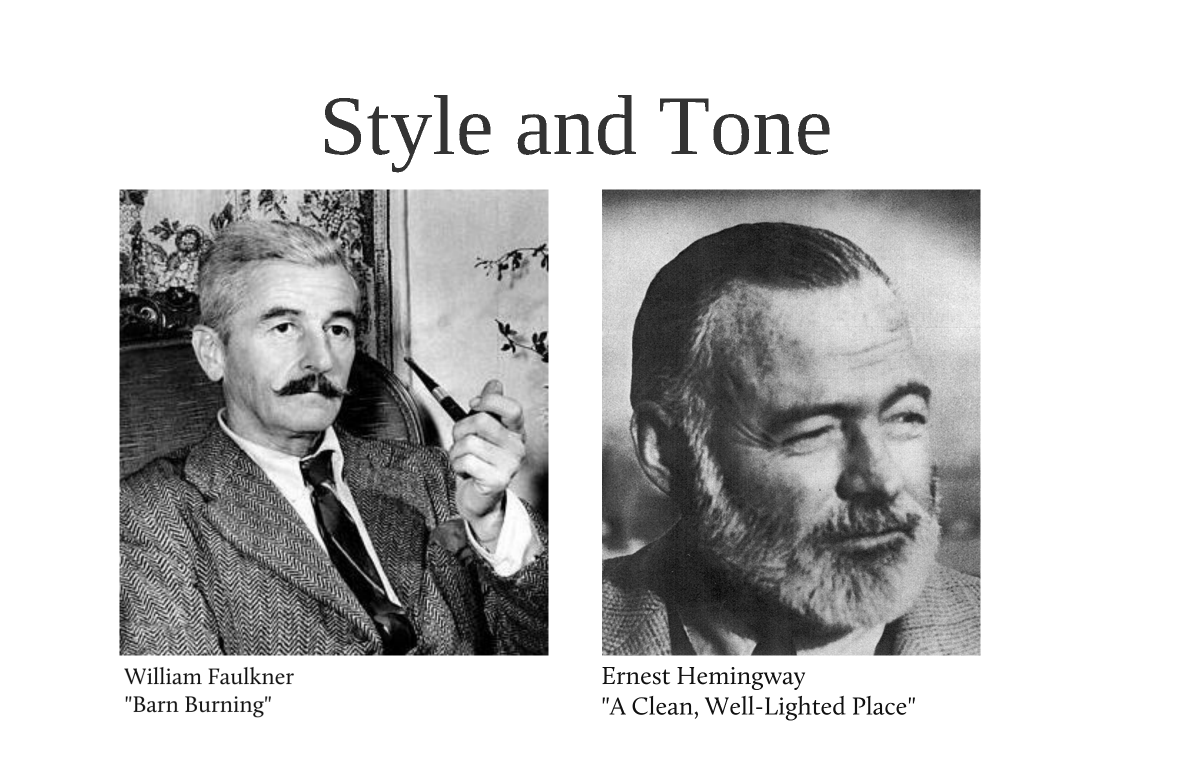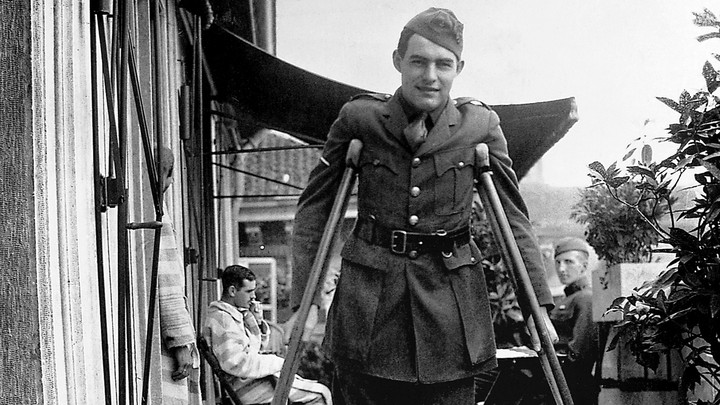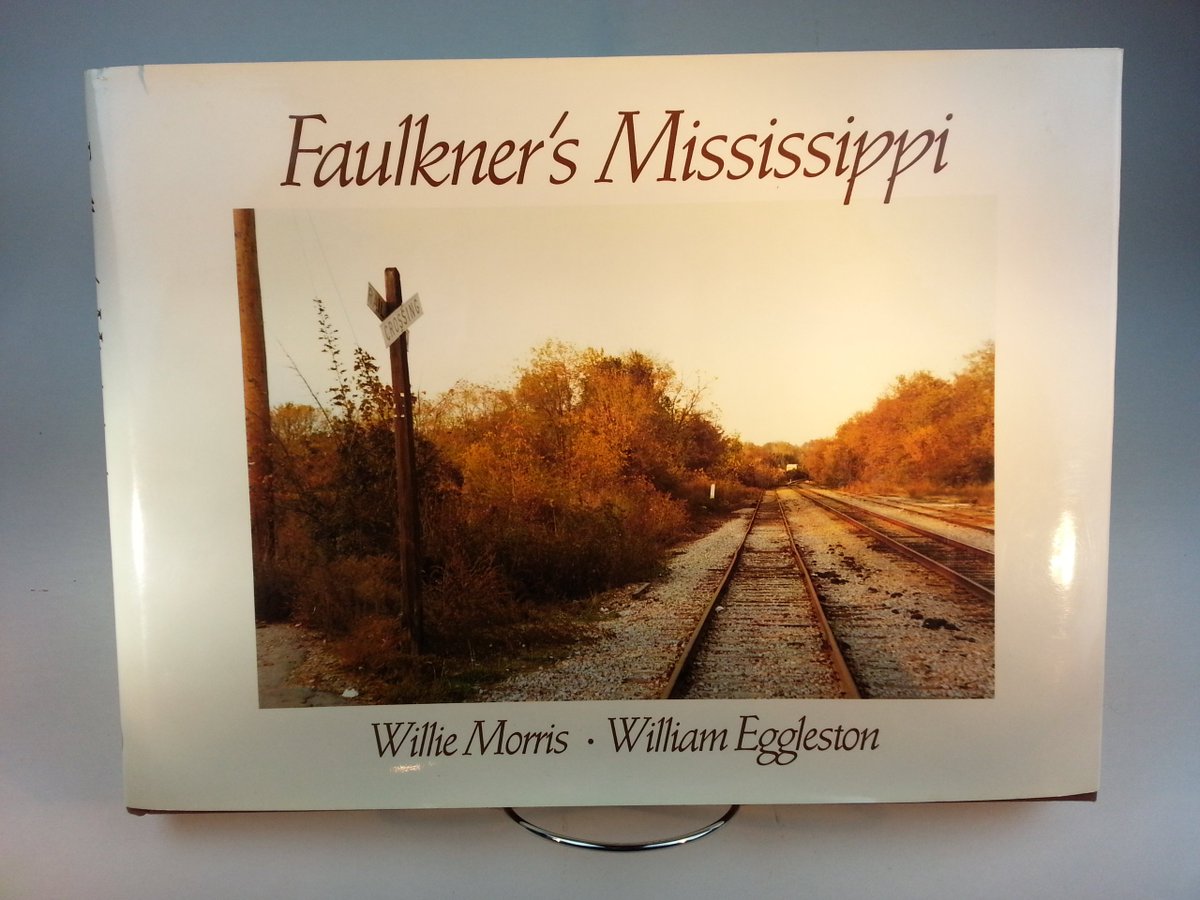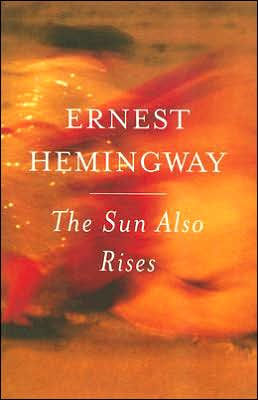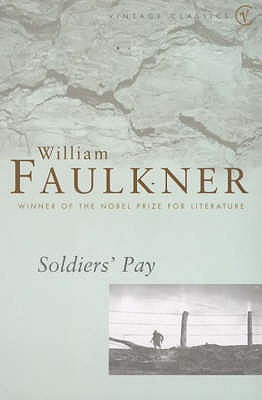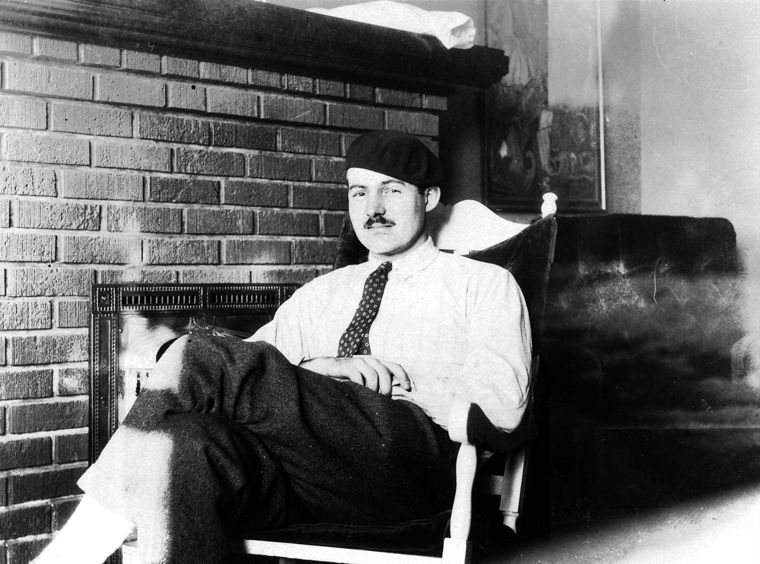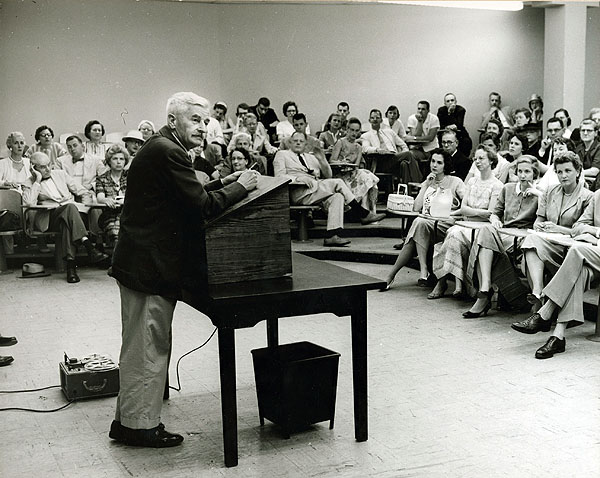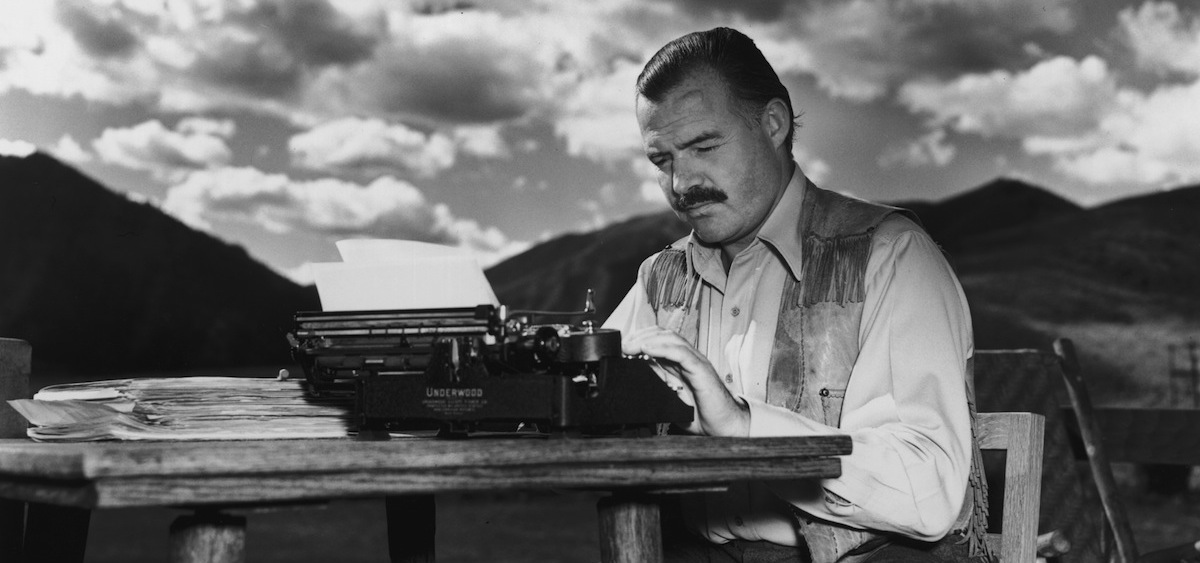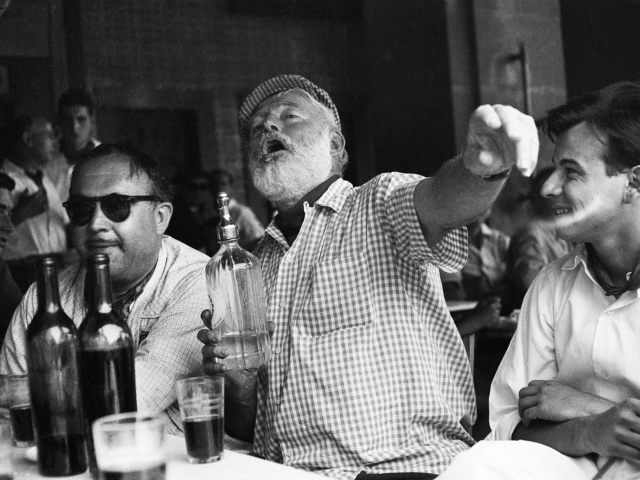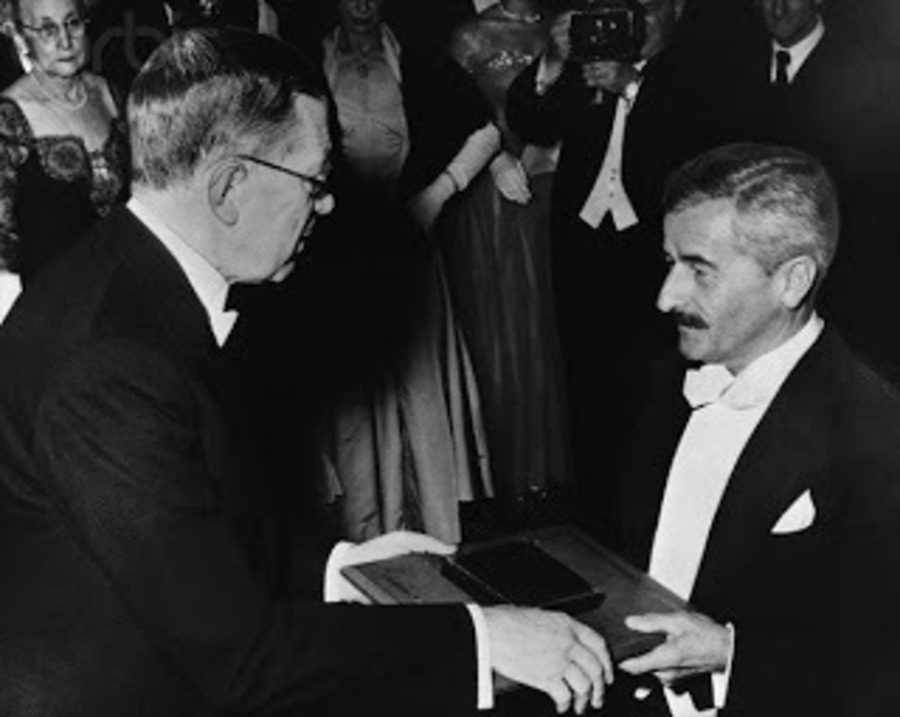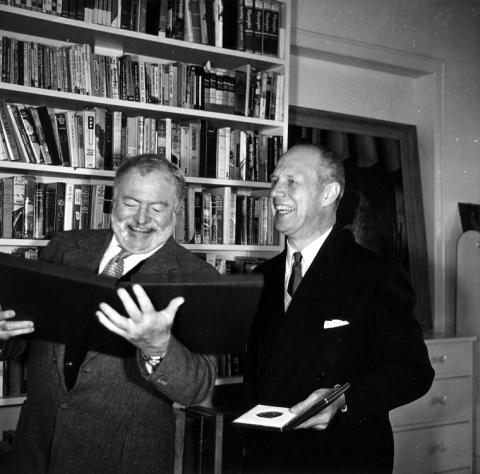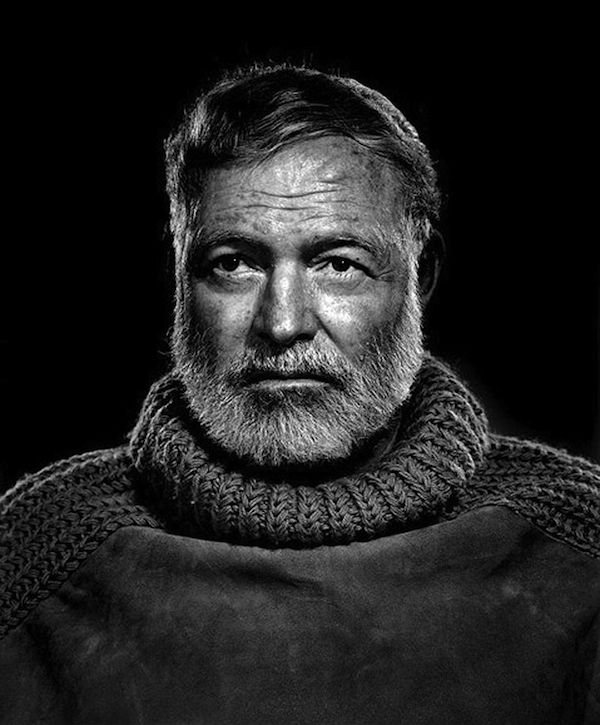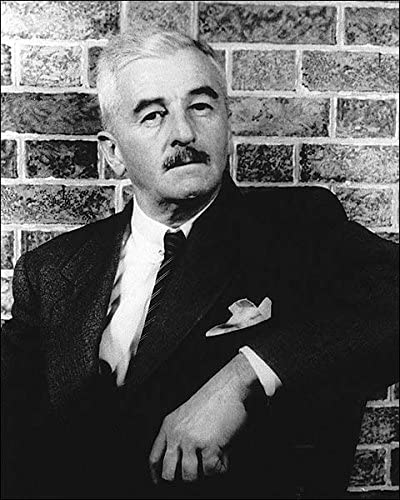1/ If you thought the 2pac vs Biggie feud in the 90s was competitive, let me tell you the story of Ernest Hemingway versus William Faulkner.
Hemingway grew up in the Midwest, and shortly after high school entered WW1. This inspired his 1st novel, A Farewell to Arms (1929).
Hemingway grew up in the Midwest, and shortly after high school entered WW1. This inspired his 1st novel, A Farewell to Arms (1929).
2/ Faulkner meanwhile grew up in Mississippi in an educated household. His mother (and Gma) were painters & photographers, and are credited with informing Faulkner's later visual-heavy writing style.
He did not enter the war, and instead attended the University of Mississippi.
He did not enter the war, and instead attended the University of Mississippi.
3/ Both Hemingway & Faulkner produced their most prodigious work between 1925 and 1960.
Hemingway's debut novel, The Sun Also Rises, was published in 1926.
Faulkner's, Soldiers' Pay, was published a year earlier in 1925.
This began what would become a multi-decade-long rivalry
Hemingway's debut novel, The Sun Also Rises, was published in 1926.
Faulkner's, Soldiers' Pay, was published a year earlier in 1925.
This began what would become a multi-decade-long rivalry
4/ The largest difference between Hemingway & Faulkner was that Hemingway often wrote fiction (loosely) based on real-life experiences.
Faulkner wrote fiction based on academic research.
Faulkner wrote fiction based on academic research.
5/ After WW1, Hemingway left the US to mingle w/ the "Lost Generation" expatriate community in Paris.
These were modernist writers and artists.
Hemingway's succinct writing style is said to have been influenced by The Jazz Age, which birthed F. Scott Fitzgerald.
These were modernist writers and artists.
Hemingway's succinct writing style is said to have been influenced by The Jazz Age, which birthed F. Scott Fitzgerald.
6/ Faulkner, on the hand other hand, remained in the south.
His writing style was far more academic, verbose, visually stimulating but poetically complicated. While Hemingway was out galavanting in Paris with his newfound friends, Faulkner stayed in Mississippi.
His writing style was far more academic, verbose, visually stimulating but poetically complicated. While Hemingway was out galavanting in Paris with his newfound friends, Faulkner stayed in Mississippi.
7/ The late 40s is when their beef started.
In 1947, Faulkner said of Hemingway:
"He has no courage, has never crawled out on a limb. He has never been known to use a word that might cause the reader to check with a dictionary to see if it is properly used."
In 1947, Faulkner said of Hemingway:
"He has no courage, has never crawled out on a limb. He has never been known to use a word that might cause the reader to check with a dictionary to see if it is properly used."
8/ Hemingway quickly responded:
"Poor Faulkner. Does he really think big emotions come from big words? He thinks I don’t know the ten-dollar words. I know them all right. But there are older and simpler and better words, and those are the ones I use."
"Poor Faulkner. Does he really think big emotions come from big words? He thinks I don’t know the ten-dollar words. I know them all right. But there are older and simpler and better words, and those are the ones I use."
9/ Over time, despite never having actually talked directly (trading blows through hearsay and the press), their comments descended into insinuating the other one was an alcoholic.
They were both alcoholics.
They were both alcoholics.
10/ That said, they both openly acknowledged each other as being masters of their craft.
Both believed themselves to be "the greatest writer living," and yet despite their differences were able to acknowledge each other's talents.
The two were compared constantly.
Both believed themselves to be "the greatest writer living," and yet despite their differences were able to acknowledge each other's talents.
The two were compared constantly.
11/ When given opportunities to collaborate, the two never accepted.
Hemingway wrote of Faulkner often in his letters: "Faulkner has the most talent of anybody.…But he will write absolutely perfectly straight and then go on and on and not be able to end it.”
Hemingway wrote of Faulkner often in his letters: "Faulkner has the most talent of anybody.…But he will write absolutely perfectly straight and then go on and on and not be able to end it.”
12/ Faulkner did the same:
“I am opposed to asking Hemingway to write the preface. It seems to me in bad taste to ask him to write a preface to my stuff. It’s like asking one race horse in the middle of a race to broadcast a blurb on another horse in the same running field.”
“I am opposed to asking Hemingway to write the preface. It seems to me in bad taste to ask him to write a preface to my stuff. It’s like asking one race horse in the middle of a race to broadcast a blurb on another horse in the same running field.”
13/ Then, in 1949 Faulkner, won the Nobel Prize in Literature "for his powerful and artistically unique contribution to the modern American novel."
This put him at the top of the writing world.
It also ignited a fire under Hemingway's pen.
This put him at the top of the writing world.
It also ignited a fire under Hemingway's pen.
14/ Four short years later, Hemingway won a Pulitzer Price for his novella, The Old Man and the Sea (1952).
Two years after that, Faulkner matched Hemingway and was awarded the Pulitzer Prize for his novel, A Fable (1954)."
Their rivalry was alive and well.
Two years after that, Faulkner matched Hemingway and was awarded the Pulitzer Prize for his novel, A Fable (1954)."
Their rivalry was alive and well.
15/ The very same year, Hemingway won a Nobel Prize of his own, for "his mastery of the art of narrative, most recently demonstrated in The Old Man and the Sea, and for the influence that he has exerted on contemporary style.”
The two were "tied."
The two were "tied."
16/ What's unique about their rivalry, and their juxtaposing writing styles, was how different their approaches were to the written word.
Hemingway is credited with single-handedly influencing the entire direction of American literature with his minimalist style.
Hemingway is credited with single-handedly influencing the entire direction of American literature with his minimalist style.
17/ Meanwhile, Faulkner remains in history to be one of the most prolific and visually stimulating authors of America.
Choosing which writer you enjoy more says a tremendous amount about what you (as a reader) value in prose:
Brevity? Hemingway.
Elegant description? Faulkner.
Choosing which writer you enjoy more says a tremendous amount about what you (as a reader) value in prose:
Brevity? Hemingway.
Elegant description? Faulkner.

 Read on Twitter
Read on Twitter


